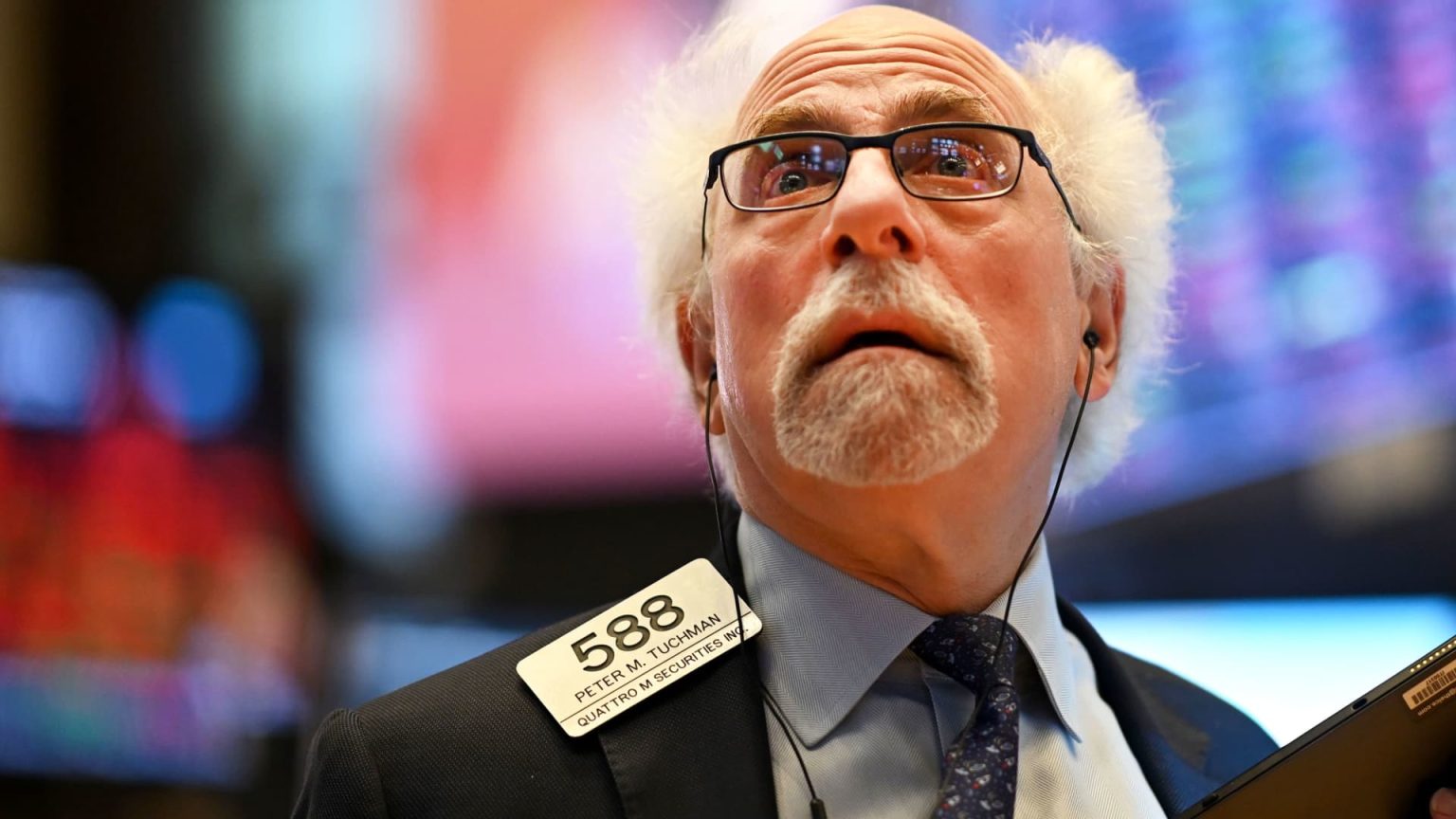Stocks tumbled on Thursday following a sharp slowdown in U.S. economic growth and concerns over persistent inflation. The Dow Jones Industrial Average dropped 1.6%, the S&P 500 fell 1.3%, and the Nasdaq Composite lost 1.7%. The Bureau of Economic Analysis reported that U.S. GDP expanded only 1.6% in the first quarter, far below economists’ forecast of 2.4%. Additionally, consumer prices increased at a 3.4% pace, raising worries about inflation and casting doubt on the possibility of Federal Reserve rate cuts in the near future.
The lackluster GDP data added to existing market worries regarding a potential pullback in growth among technology earnings. Meta saw a 13% decline after issuing weak revenue guidance for the second quarter, while International Business Machines fell 8% after missing revenue estimates for the first quarter. These developments, along with concerns about the monetization of generative AI technology, raised questions about tech stocks and their growth potential. Investor focus shifted to upcoming earnings reports from Microsoft and Alphabet.
Despite the overall market decline, semiconductor ETFs performed well on Thursday. ETFs such as the VanEck Semiconductor, Invesco PHLX Semiconductor, and iShares Semiconductor ETFs were up between 0.5% and 0.9%. Leading chipmaker Nvidia saw a rise of more than 2%, bouncing back from a recent sell-off. However, the broader market struggled, with the Dow experiencing its worst day of the year, led by significant declines in IBM and Caterpillar shares after both companies missed revenue estimates for the quarter. Big tech names like Microsoft and Amazon also saw losses.
The negative sentiment towards tech stocks was further amplified by Meta Platforms’ weak revenue guidance and subsequent share price drop, marking the stock’s worst day since October 2022. CEO Mark Zuckerberg’s comments on the company’s long-term investments in artificial intelligence and the metaverse contributed to the sell-off. This, along with disappointing GDP data, led to a significantly higher number of decliners compared to advancers at the New York Stock Exchange—a ratio of 10 to 1 — dampening investor sentiment.
Investors raised concerns about the implications of the disappointing U.S. GDP report, with one investor describing it as the “worst of both worlds” due to slowing economic growth and persistent inflation. The data raised uncertainty about the Federal Reserve’s monetary policy direction and put pressure on markets. As the benchmark Treasury rate topped 4.7% and investors awaited the release of the personal consumption expenditures report, they hoped for signs of improvement in pricing pressures. Slowing economic growth, paired with rising inflation, could pose challenges for equity markets in the near term, leading to increased volatility and cautious investment decisions.













